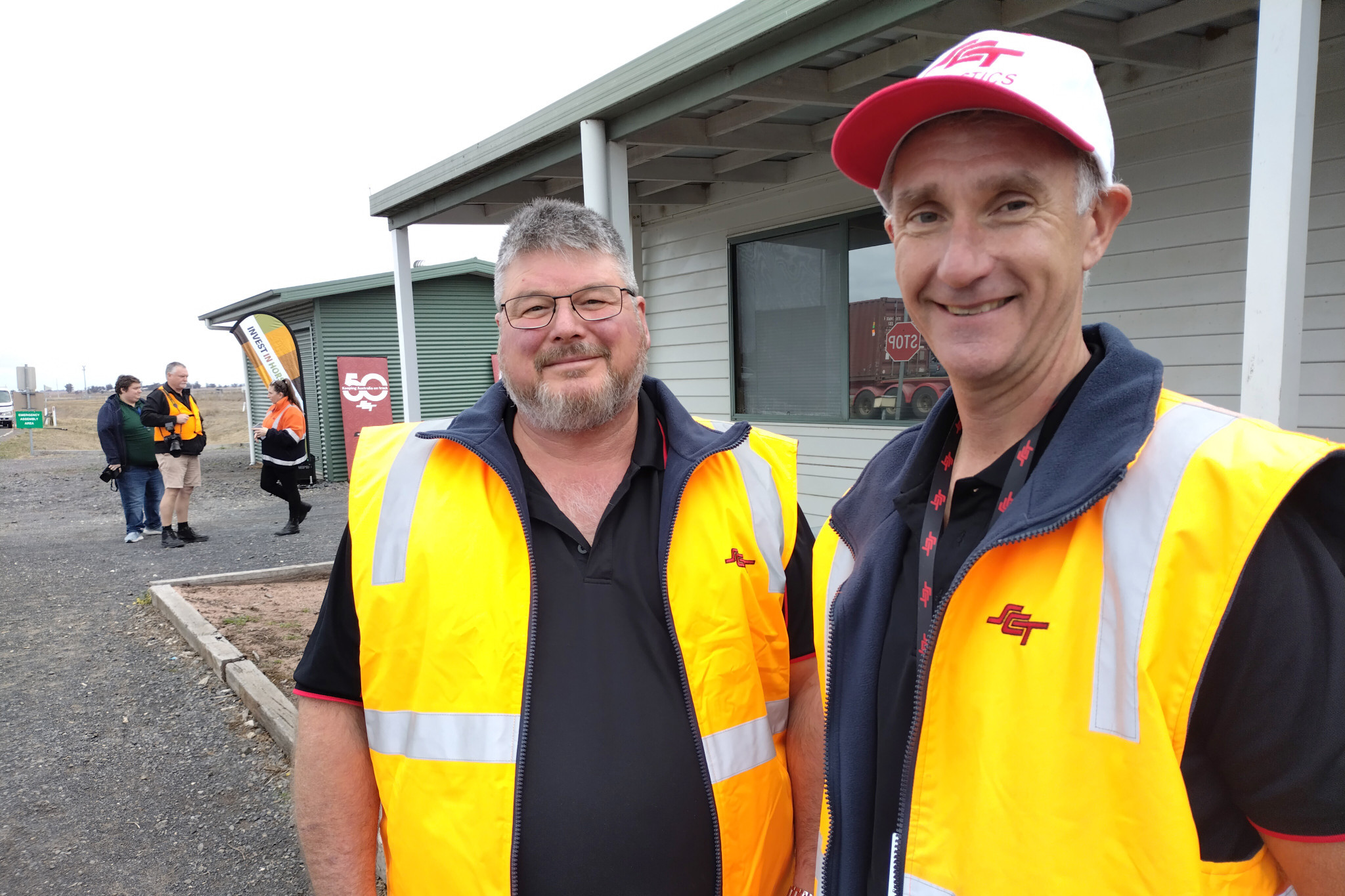General News
22 June, 2024
Freight hub on track to expand at Dooen
Horsham is playing a crucial role in the nation's rail freight network, and that is likely to grow bigger over time.

Peter Smith, founder and owner of Australia's largest privately-owned logistics rail company Specialised Container Transport (SCT), has told a Wimmera forum of the importance of its intermodal centre at Dooen in plans to move more freight by rail.
The company estimates its logistics system now removes 22,000 truck loads annually off highways between Horsham and Melbourne.
SCT officials also said the company planned a $120 million expansion within the next 10 years.
This year Dooen intermodal centre operators will move more than 14,000 containers - about 270 a week - with financial benefit to the region measured in millions of dollars.
Almost all carry grain or legumes produced within 100 kilometres radius from Horsham to the Port of Melbourne, Australia's largest export port. The service is the state's sole direct-to-port run.
An open day at the Dooen site and a later forum in Horsham Town Hall organised by senior managers brought home to visitors the value of the industry to the Wimmera and the advantage of its easily-accessed train links with Brisbane, Sydney, Melbourne and Perth.
The SCT company, celebrating 50 years in business, formed as a truck logistics business and now has 1200 staff operating the largest national freight-train fleet of 39 locomotives, 9000 pieces of rolling stock and 1300 containers.
In 2013 SCT acquired the Horsham business from owners Rodney and Jenny Clarke who traded under Wimmera Container Lines.
Horsham Rural City owns the 40-hectare property which has capacity for 1260 containers.
Key people in the Dooen hub include operations manager Damian Paynter, terminal supervisor Darren Carlson and office supervisor Ann Puls. Former Horsham resident Pat Kerin of Melbourne is rail sales director.
The centre runs two locomotives, 56 rail wagons and 19 trucks including six A-doubles. It has 28 drivers and six office staff. Overall, the company runs 500 trucks.
The forum heard that one freight train with more than 120 wagons replaced up to 150 semi-trailer loads. This meant fewer trucks on already crowded roadways and less wear and tear.
Ports and government relations manager Matt Eryurek said that reducing road freight by just one per cent reduced accidents, emissions and health costs, and had a financial value of about $71.9 million annually.
Mr Eryurek said the company's Altona facility allowed quicker access to the Port of Melbourne.
The Port of Melbourne is Australia's busiest, moving in a month the equivalent to that which moves through Adelaide port in a year.
In an online link Mr Smith said his hope initially was that the company survived. His aims now were that staff embraced the values of safety, passion, integrity, respect, innovation and teamwork.
Earlier, Port of Melbourne business development head Leatrice Treharne told the forum the port accounted for about 30,000 jobs and added about $11 billion annually to Australia's economy.
She said 125 freight trains were unloaded at the port each month and almost 95 per cent of national imports went through Melbourne's ports. It also had strong links with New Zealand, the US and European markets.
Mr Eryurek said his company appreciated the warm welcome afforded him and his team during their Horsham visit.
"We remain proudly Australian - and privately owned by the Smith Family," he said.
"We know that rail is the future of Australia and SCT is proud to have been running trains from Wimmera-to-port since 2013."